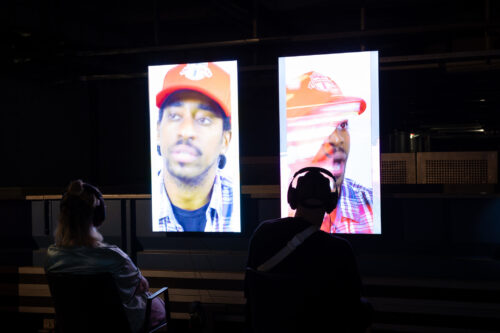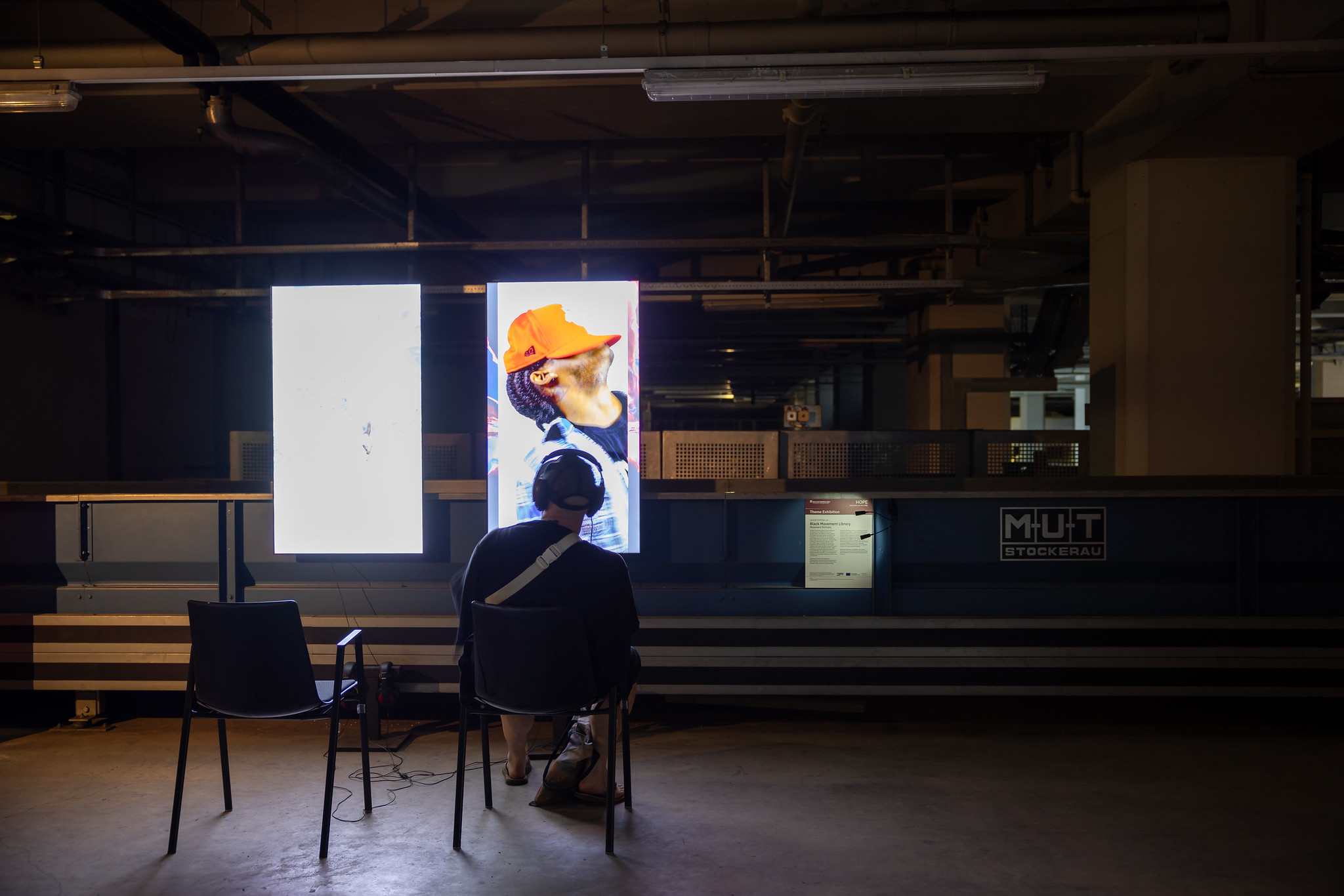In addition to cost and accessibility, technology’s extractive procedures often decide who is seen and recognized in space. Navigating, critiquing, and bending digital systems, McMillian utilises them as a mechanism to confront the limitations of technology, specifically in terms of how it may harm, isolate, restrict, and ignore the needs of Black people. She is experimenting with making room for different ways of being.
While access to software, motion capture data and 3D base models has skyrocketed, there is still a lack of tools to create diverse characters and movements unexplored by systems that center assumptions of neutrality. Hence LaJune interrogates how we can combat the commodification, exploitation, and dilution of Black culture and people. How can we discover, learn, invest in, and steward systems that prioritize liberation, and abundance? What happens when we ritualize the archival process of data collection, and invite the community as a witness?
LaJuné manifests: “Movement does not only represent our individual experiences, but it also represents our collective memory, transcending space, time and oppressive social structures. It allows us to connect to each other, our ancestors, our deepest selves, and gives us space to communicate to our future. Movement is a technology, holding the stories of our existence globally.
Our bodies and movements are MORE than data points and avatars. They hold our humanity. It is time for digital spaces and tools to reflect that. It’s time for ALL spaces we enter to reflect that.”
-

Black Movement Library
The Black Movement Library’s projects Movement Portraits and Spirit and Child showcase the evolution of LaJuné McMillian’s art practice, integrating performance and extended reality tools to celebrate and dive into Black embodied realities.
